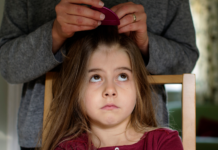Friends and family think we’re crazy…and I’m completely okay with that. Summer is here. The days are getting longer. Yet our schedule typically revolves around our boys’ {2 & 4} bedtime between 6-7:30 every night. Of course, we have special occasions where they get to stay up later {birthdays, playdates, family outings} but because those nights are far and few between I don’t worry about them getting so overtired they can’t function the next day.
 Yes, I know that school just got out and one of the highlights of my own childhood was always staying up late and sleeping in during summer break …but hear me out. Children of any age who maintain a consistent {and early} bedtime and wake time manage life so much better!
Yes, I know that school just got out and one of the highlights of my own childhood was always staying up late and sleeping in during summer break …but hear me out. Children of any age who maintain a consistent {and early} bedtime and wake time manage life so much better!
Early bedtimes frighten parents.
As a sleep consultant, I frequently hear “there’s no way my child would go to sleep that early”, “but then they’ll wake up at 5 am”, or “then I’d never get to spend any time with them”. Let me put some perspective into each of these statements.
Until some time into their third year, your child’s ideal bedtime is between 6 and 7:30 pm, and it only bumps to 8 pm after then until they’re 5. Between 5 and 12 an ideal bedtime is between 7 and 9 pm. The longer they stay awake the more likely they’ll become overtired, which looks like hyperactivity in a child. Good luck with getting them to fall asleep when this happens. Adolescents and teens need 8-10 hours of consolidated sleep to perform at their best.
In the sleep world, we have a saying. Sleep begets sleep. Every parent I meet struggles with the idea that a super early bedtime will mean their child will be up before the rooster crows. In reality, our youth is getting far less sleep now than they ever have. The later they fall asleep the more overtired they become and the higher the likelihood they’ll wake up early. And those middle of the night wakings in a child older than 10 months of age…overtired!
I advocate early bedtimes and here’s why.
The truth is that as sleep consultants we recommend that super early bedtime because it helps your child catch up on the sleep that they’ve lost over all the months or years that they haven’t been sleeping well. And the earlier they go to bed, the better they sleep, and the more likely they are to sleep through the night and wake at their ideal wake time in the morning {which is between 6-7 am}.
And trust me, I totally understand not getting to spend much time with your child in the evenings. Especially if you work outside of the home and don’t get home much before bedtime. But helping them get ready for bed is a perfect time to spend some quality time with them {just not roughhousing or revving them up}. Better yet, spend quality time with them when they wake in the morning. They’ll be refreshed and happy rather than in the middle of that nighttime meltdown.
A consistent bedtime is better than no bedtime.
Even if you aren’t able to get them into bed early, the most important thing you can do is consistently and firmly have a routine bedtime. Children crave routine. When they know what to expect they are less likely to struggle with it. Children fear the unknown. It’s important to have a consistent bedtime routine no matter the age…and no matter what time bed is. This allows the child to know that bedtime is coming soon. The more routine it is, the more they look forward to it, and the easier the transition is into bed.
A child with no consistent bedtime is more likely to suffer from what we call “social jet lag”. Having no set bedtime is linked to lower performance in math, reading, and spatial awareness. Having no set bedtime chronically leads to sleep deprivation, and sleep deprivation leads to the inability to concentrate, make decisions, or fully engage. Even worse, sleep deprivation is a leading cause of motor vehicle accidents in teens.
Consistent and early bedtime positively affects your child’s behavior.
Research shows that children who consistently go to bed at the same time each night are less irritable and impulsive. Children who consistently go to bed too late, or had a lax bedtime schedule were more apt to be hyperactive, and struggle with more social, emotional, and conduct problems than peers. It’s no surprise then, that there has been a significant increase in the number of children diagnosed as having ADHD. But the question remains, is this behavior really ADHD or just a manifestation of a child who has become severely overtired?
Sleep inconsistencies can lead to depression and suicidal ideation.
Adolescents, teens, and young adults can benefit from a firm and consistent bedtime. A 2014 study found that adolescents who are routinely “catching up” on sleep on the weekends may be associated with suicide attempts and self-injury because this “catching up” is an indicator of insufficient weekday sleep. Sleep deprivation is also a leading cause of missed school, poor academic performance, and risky behaviors.
An early bedtime that is routine and ideal for your child’s age has many advantages.
When your child is on a routine bedtime schedule you’ll actually be able to have “me” time or spend quality time with your spouse. Not only do you get your evenings back, but you get your child back. When they’re well-rested they’re happier, they’re healthier, and they’re mentally, emotionally, and physically stronger.
Quality, restorative sleep is considered the third pillar of health. During restorative sleep the blood supply to muscles increases, we see tissue growth and repair, memory consolidates, energy is restored, and hormones that regulate growth and appetite are released.
With all those benefits, how can you NOT get your little down early for bed?!















